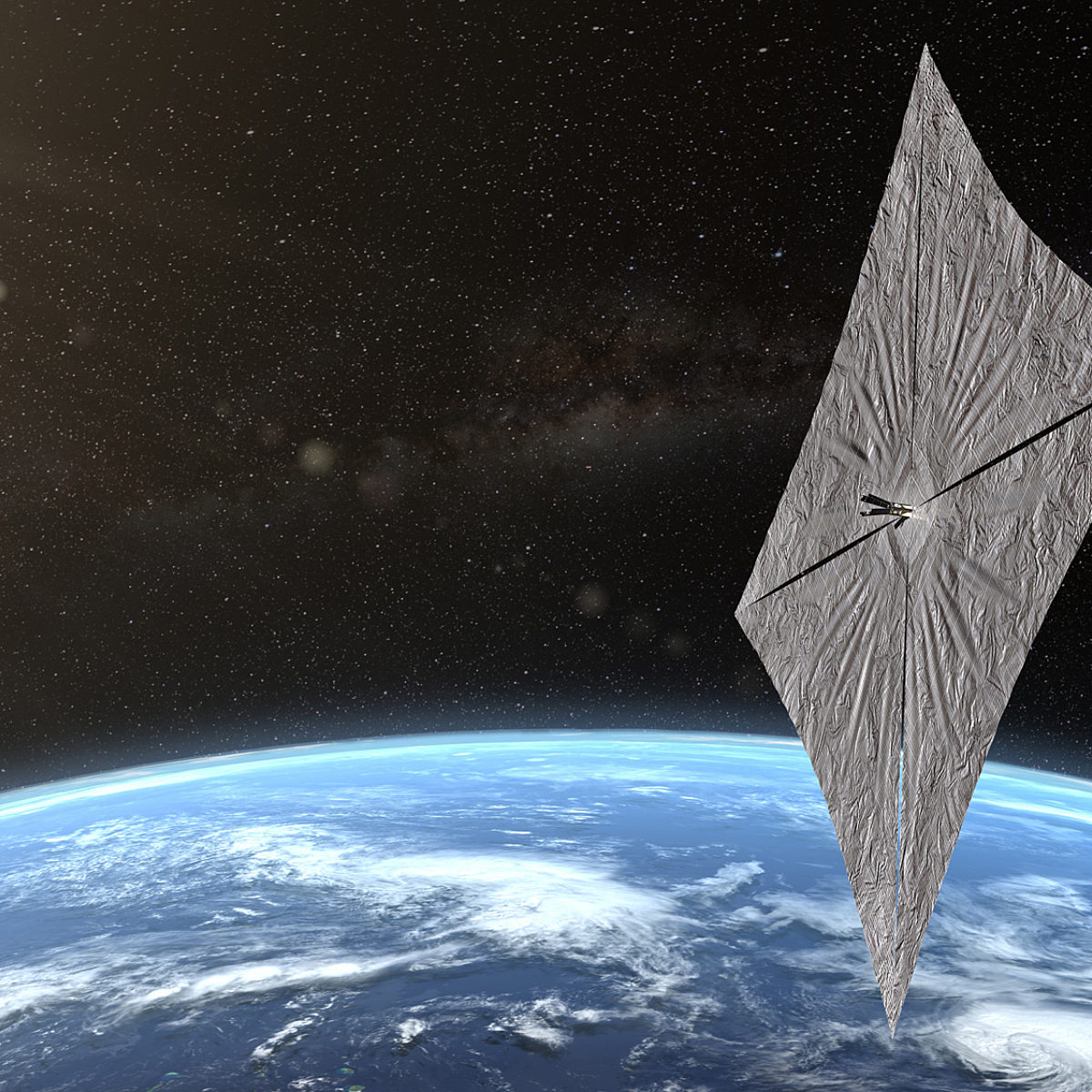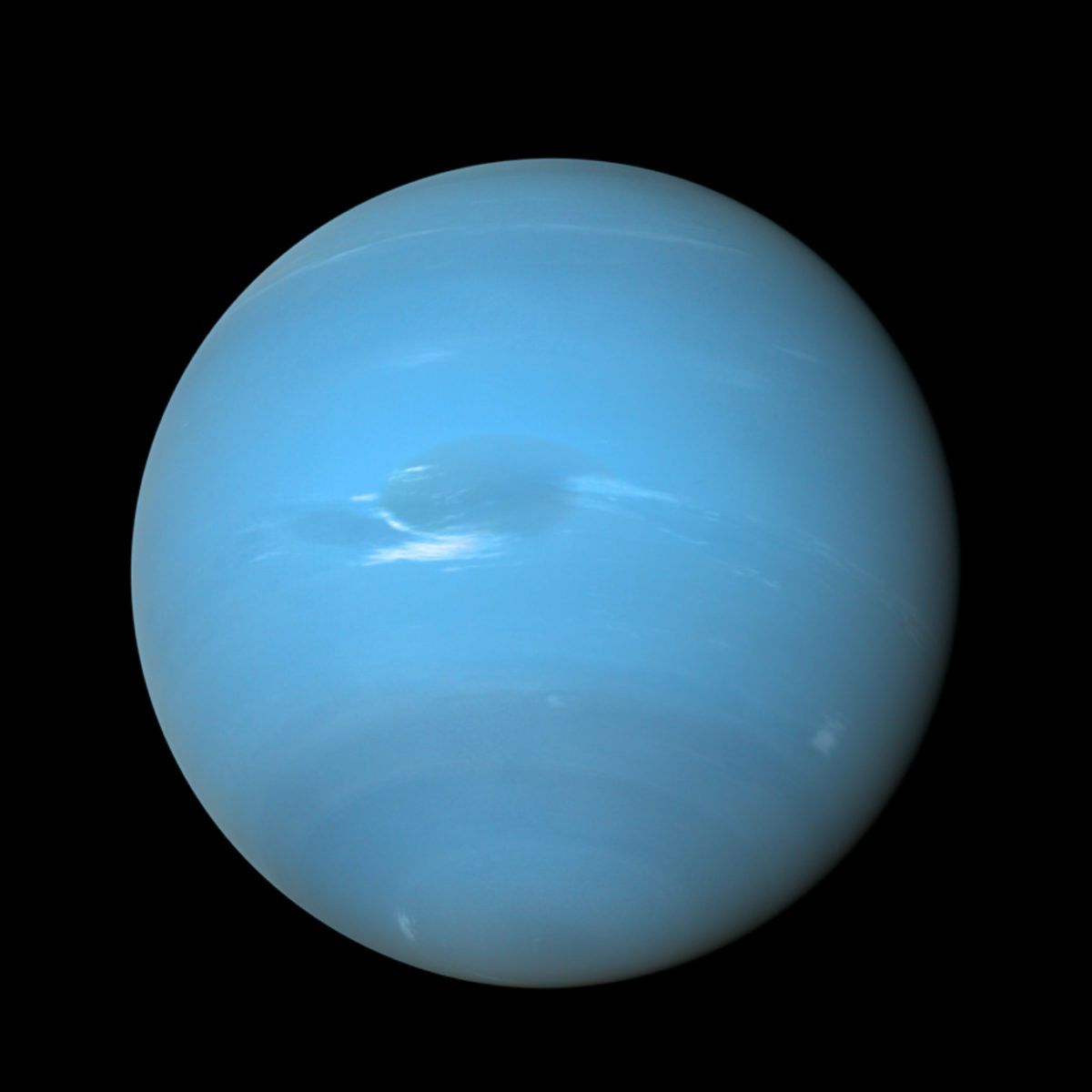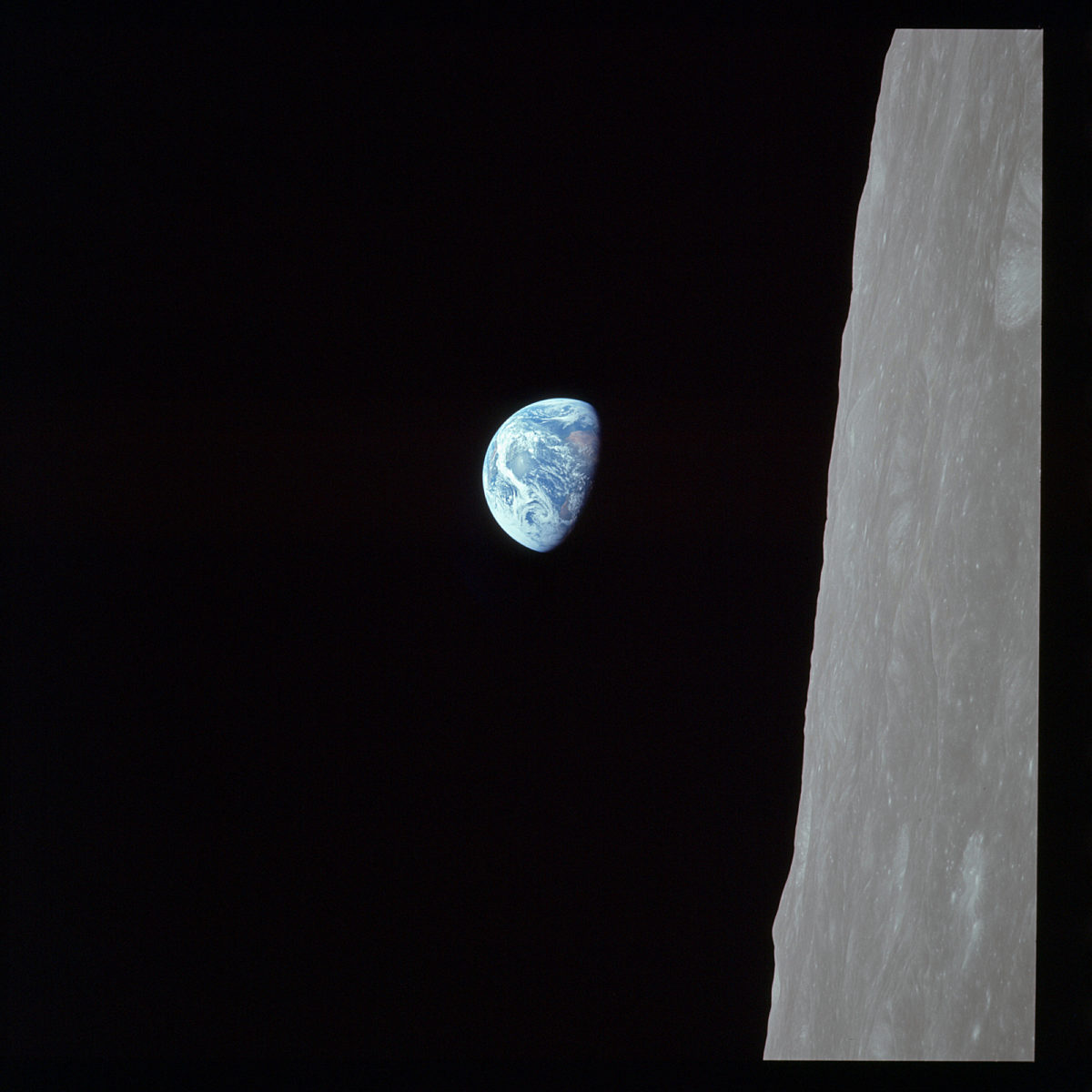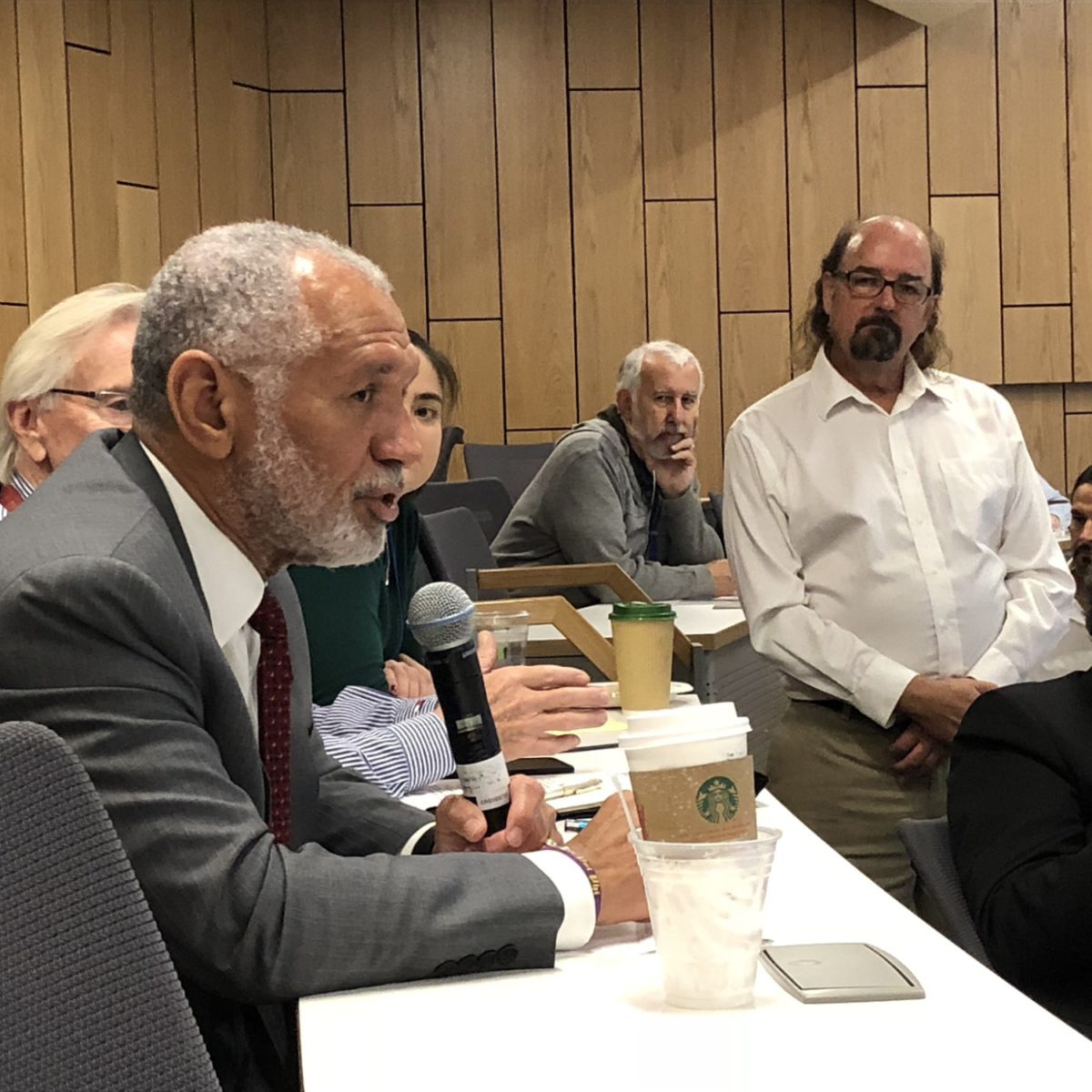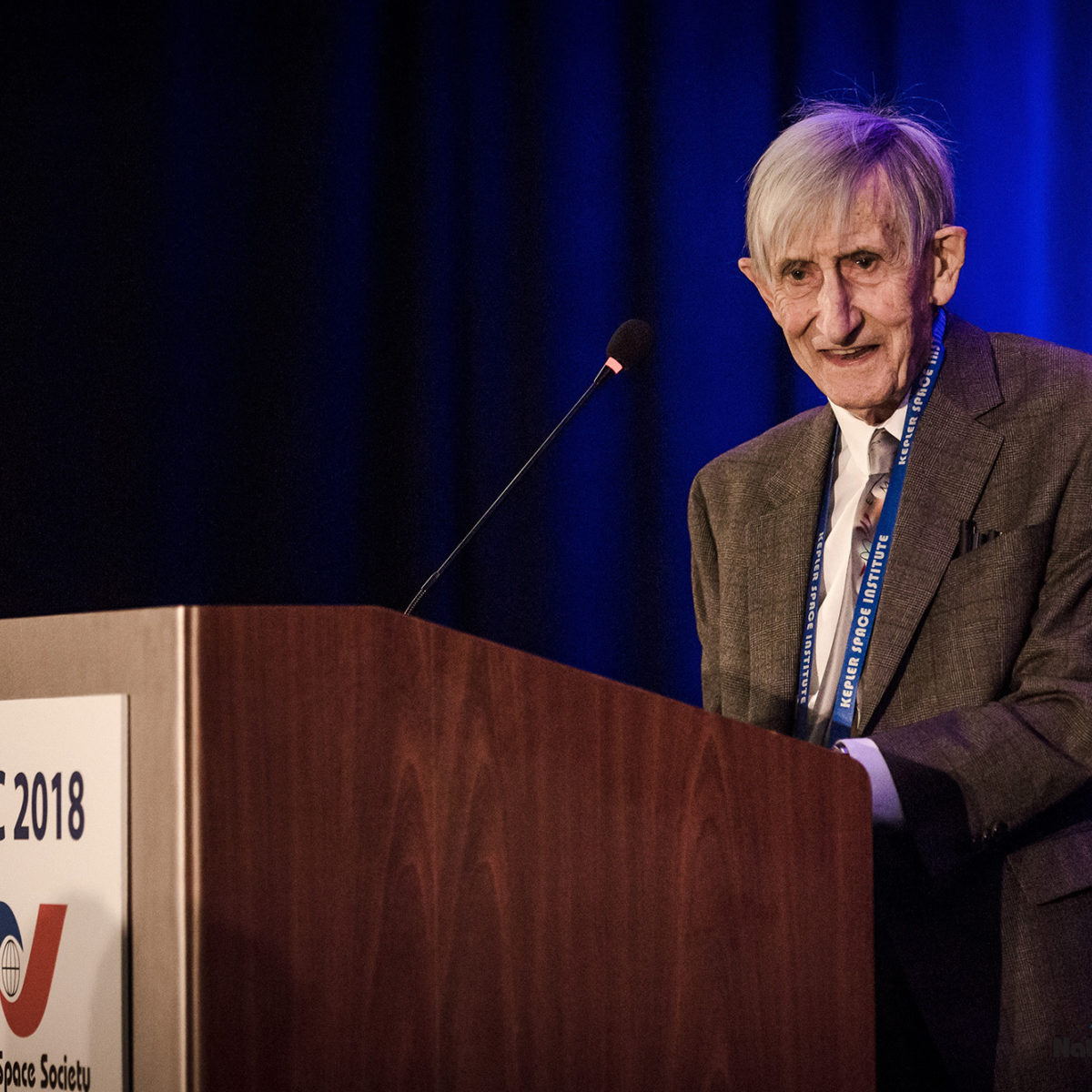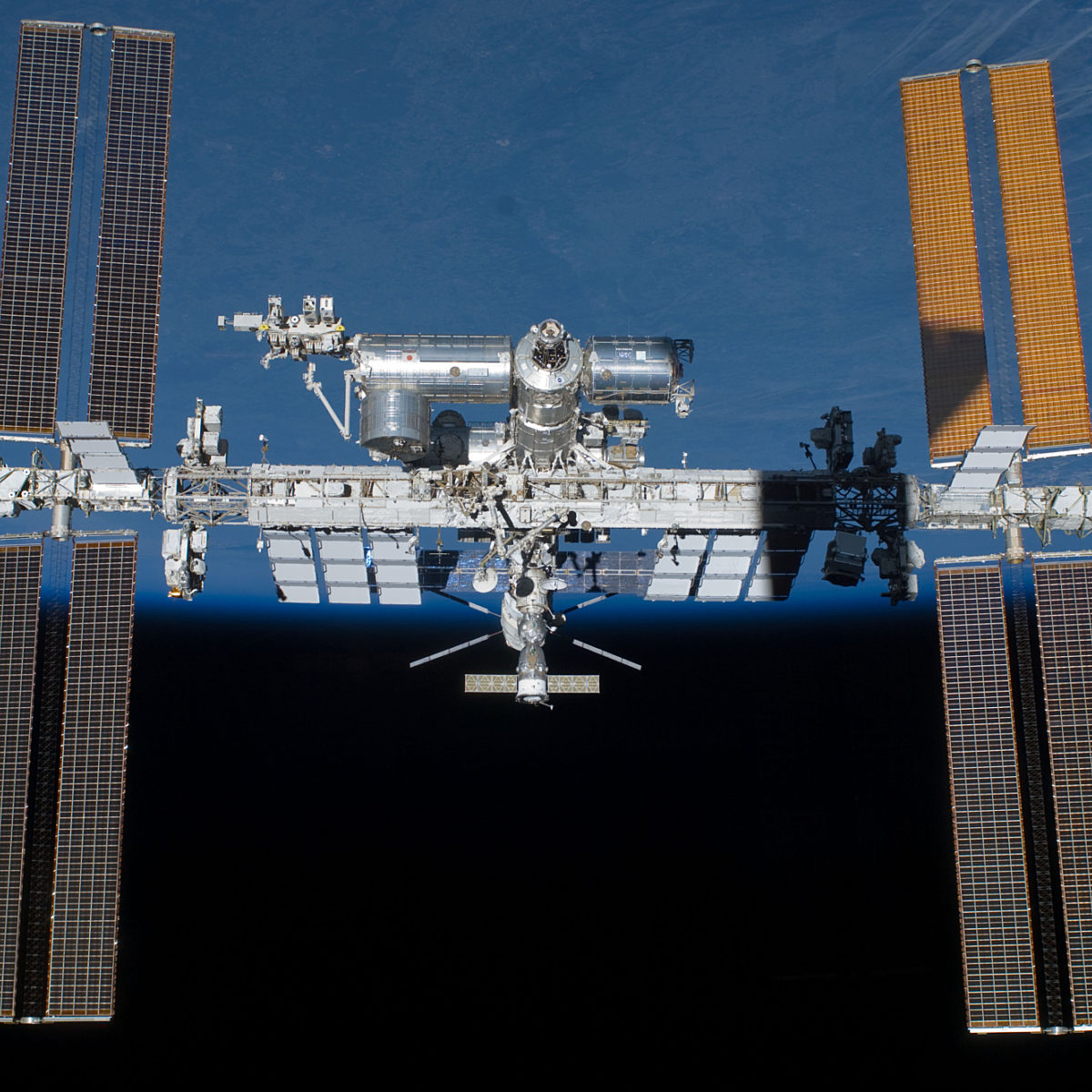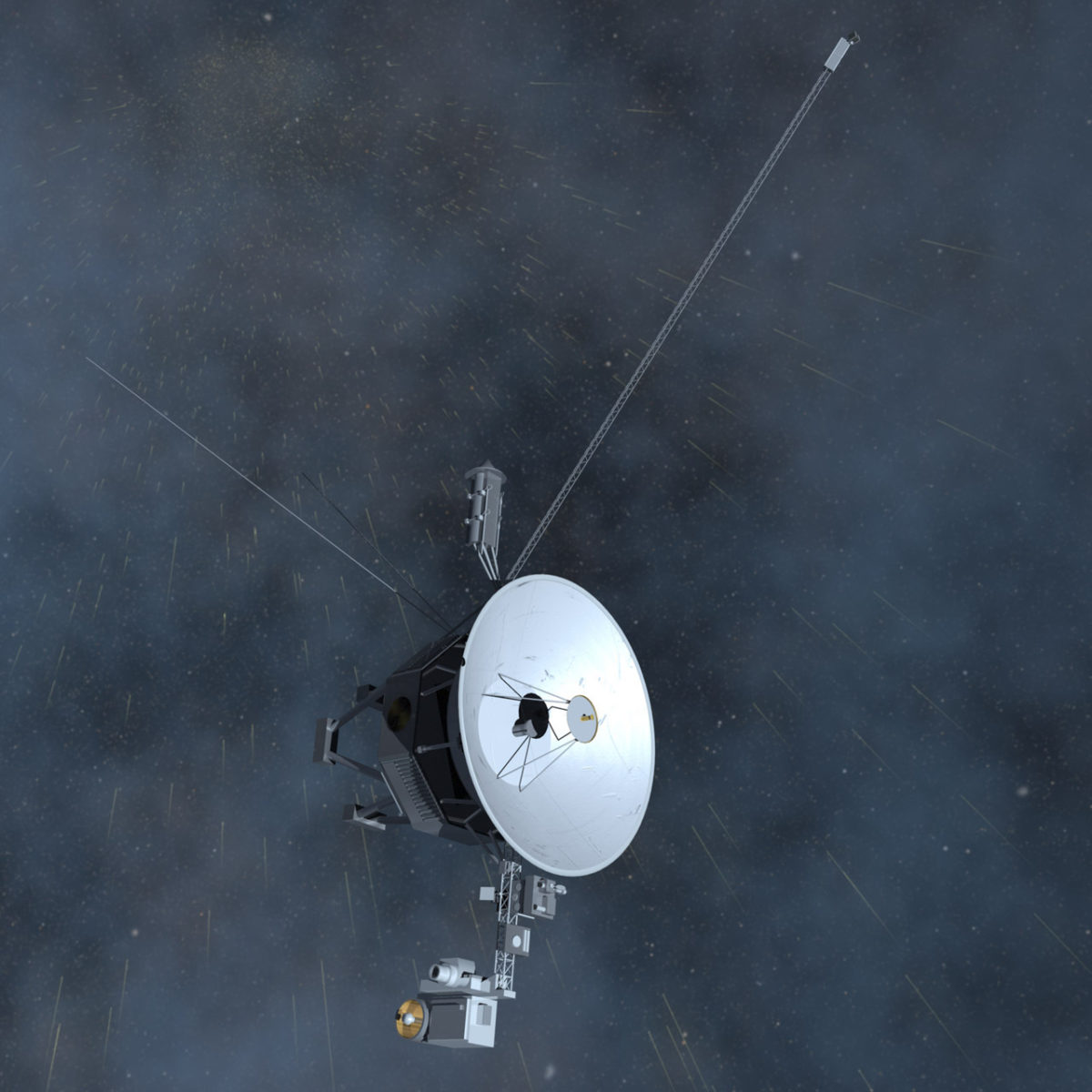Since 2002, Planetary Radio has visited with a scientist, engineer, project manager, advocate, or writer who provides a unique perspective on the quest for knowledge about our Solar System and beyond. The full show archive is available for free.
Search Planetary Radio
The day is almost here. With the launch of a Falcon Heavy rocket, The Planetary Society will begin its mission to prove that a tiny, orbiting spacecraft can be propelled by the light of the Sun.
The U.S. won the space race in July of 1969 with the success of Apollo 11. But was the Soviet Union even racing? How close were they to beating the United States to the Moon?
Jay Pasachoff visits Planetary Society headquarters for a conversation about the latest edition of his and Alex Filippenko’s monumental textbook The Cosmos.
When will we return to Uranus and Neptune? Planetary scientist Amy Simon explains why a mission to the so-called ice giants is a high priority as she tells us about these mysterious, blue worlds.
With missions like Chang’e 4 on the far side of the Moon, China has firmly established itself as a leader in space exploration. Space journalist Andrew Jones helps us explore the nation’s ambitious near and long-term plans.
Historian John Logsdon discusses his new book, Ronald Reagan and the Space Frontier It explores the legacy of the 40th president’s major space policy decisions. We look at four major topics: early efforts at commercializing space, the survival crisis for planetary exploration, the Space Shuttle, and the decision to build the space station.
The Mars Exploration Rover mission was declared complete on February 13, 2019. On the very next day, MER Project Manager John Callas and Deputy Project Scientist Abigail Fraeman came to Planetary Society headquarters for an extended and emotional conversation with Mat Kaplan and Emily Lakdawalla.
This is the 50th anniversary of the most audacious space mission in history. Apollo 8 blazed a path for the first moon landing seven months later, and gave a troubled nation reason for hope and pride.
He led NASA for eight years, but not till he had flown on four Space Shuttle missions and enjoyed a long military career. Charlie Bolden talks with Mat about his time at the space agency and where we’re headed on the final frontier.
You haven’t seen the best pictures from the Apollo era and other great space achievements till you’ve seen them in 3D. Queen guitarist and astrophysicist Brian May is also mad about stereoscopic imagery.
Happy 60th, NASA. In celebration of the space agency’s birthday, we do the audio equivalent of pulling out NASA’s baby book and explore its origin story.
The Dean of space policy, John Logsdon, returns with stories and a new book of original documents that shaped the US space program from the birth of NASA to SpaceX. Planetary Society CEO Bill Nye reports in from this year’s International Astronautical Congress in German, while Senior Editor Emily Lakdawalla wraps up a working tour of New Zealand. Then join Bruce and Mat for this week’s What’s Up.
There’s so much more to Freeman Dyson than the Dyson Sphere. The mathematician, physicist, futurist and author is one of the greatest and most original minds of our era.
After announcing it intends to divest from the International Space Station in 2025, NASA quietly released a new report on its transition plans, laying out a series of principles that will set the future of U.S. astronauts in low-Earth orbit. Can a private entity really take over the space station? Where did this idea come from anyway?
Fifteen years before Sputnik, on a bright 1942 afternoon in northern Germany, a thundering machine of metal and fire pierced the sky, ultimately touching the edge of space for the first time in history. It opened a new era of opportunity and terror with rocket technology. Dr. Michael Neufeld joins us discuss the significance of this test and how it happened.
It is most space fans’ favorite planetary science mission, and with good reason. We visit with the man who has been in charge of Voyager mission science for more than four decades.
When the Pathfinder lander reached Mars 20 years ago it began a Martian renaissance that has never paused. JPL scientist Matt Golombek was the mission’s Project Scientist. He looks back and to the future of our explorations at the Red Planet.
Former NPR science reporter David Baron discusses the stories of men and women who made their way across the American West to view and document the total solar eclipse of 1878.
Veteran Jet Propulsion Lab planetary scientist Bonnie Buratti talks with Mat about the wonder of our solar neighborhood that she explores in
Rod Pyle reveals bizarre yet fascinating space projects of the past in his new book. Pyle also exposes previously classified information about missions and spacecraft you thought you knew.


 Explore Worlds
Explore Worlds Find Life
Find Life Defend Earth
Defend Earth


